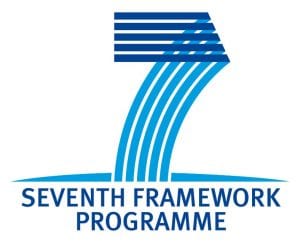A multi-million European project aimed at combating some of the EU’s most prevalent chronic medical conditions is being led by academics at the University of Lincoln.
The REtinal Vascular Modelling, Measurement and Diagnosis (REVAMMAD) project aims to train a new generation of interdisciplinary scientists for the academic, clinical and industrial sectors, and to trigger a new wave of biomedical interventions.
PhD students will be trained by some of the EU’s leading academics and practitioners to further advances in diagnosis, prognosis and prevention of diseases such as diabetes, hypertension, stroke and coronary heart disease and retinal diseases.
Funded by the European Union’s 7th Framework (FP7) Marie Curie Initial Training Network programme, the University of Lincoln has been awarded 900,000 euros from the 3.8 million euro budget to lead the project and to develop retinal imaging and measurement training and research.
The University’s School of Computer Science has a strong track record in retinal image processing, having developed techniques to support automated diagnosis of retinal diseases such as diabetic retinopathy, which can eventually lead to blindness, and new model-based methods for vascular segmentation (image processing of the blood vessels).
The retina provides a unique window into the circulatory system (vasculature) making it an appropriate organ for diagnostic purposes, even for vascular diseases primarily affecting other organs.
Further research into measuring subtle changes in this area will enable the risk of conditions developing to be detected and tracked non-invasively through routine procedures such as standard eye tests at opticians.
Along with partners in the UK, France, Germany, Denmark, Italy and Greece, academics at the University of Lincoln will create a cohort of young researchers able to effectively translate the latest vascular modelling theory and computerised image analysis techniques into effective disease interventions.
Professor Andrew Hunter, Pro Vice Chancellor and Head of College of Science, is the project originator and coordinator and has ten years’ experience in retinal imaging.
He said: “The vasculature plays a key role in chronic medical conditions that account for an increasing proportion of EU member state healthcare costs, including Alzheimer’s, diabetes, stroke and coronary heart disease. These issues have ignited considerable interest in computerised analysis of vascular images, to support scientific enquiry, diagnosis, prognosis and screening. However, until now research has been fragmented. There is therefore a clear need to establish a research community that integrates modelling, measurement and clinical investigation. This requires the training of a community of interdisciplinary experts with the scientific and mathematical expertise to determine how physiological changes can affect the vasculature, the computer vision skills to detect measurements that are correlated to such changes, and the medical expertise to relate these to effective prognosis and diagnosis. We therefore brought together the REVAMMAD project to provide a generation of experts with a unique blend of skills uniting theory, modelling, measurement and decision support, laying the ground work for improved retinal research in the next generation.”
The Initial Training Network (ITN) includes clinicians, hemodynamic (blood movement) theorists, physiologists, imaging experts (retinal and other major vascular systems) pharmacologists and healthcare/bioinformatics companies.
The PhD students will be trained through one common basic scientific course, several blocks of additional modules, plus individual on-site and on-the-job experience at the host partner but also during workshops and summer schools. The breadth of training would not be possible without a European approach because no individual partner or country has the full range of desired expertise or training courses.
Commenting on the ITN, Prof Hunter added: “The training programme will provide facilities that can accommodate any type of PhD student. It will give students the opportunity to learn and develop state of the art techniques and methodologies while working across disciplines. This will help to integrate research around an ambitious programme that will establish a clear EU lead. Improved screening, prognosis and diagnosis for multiple age-related conditions will have a significant impact on health-care costs and quality of life.”
David Steel, Consultant Ophthalmologist at Sunderland Eye Infirmary, a clinical partner in the project, said: “We are excited at the potential enhanced image analysis of the retinal vasculature could offer in terms of earlier diagnosis of both systemic and ophthalmic diseases. Retinal photography is a simple test offered by high street opticians around the country – potentially we could extract a great deal more important information from these images than we currently do and in turn improve our understanding and management of patients with a range of serious diseases.”
